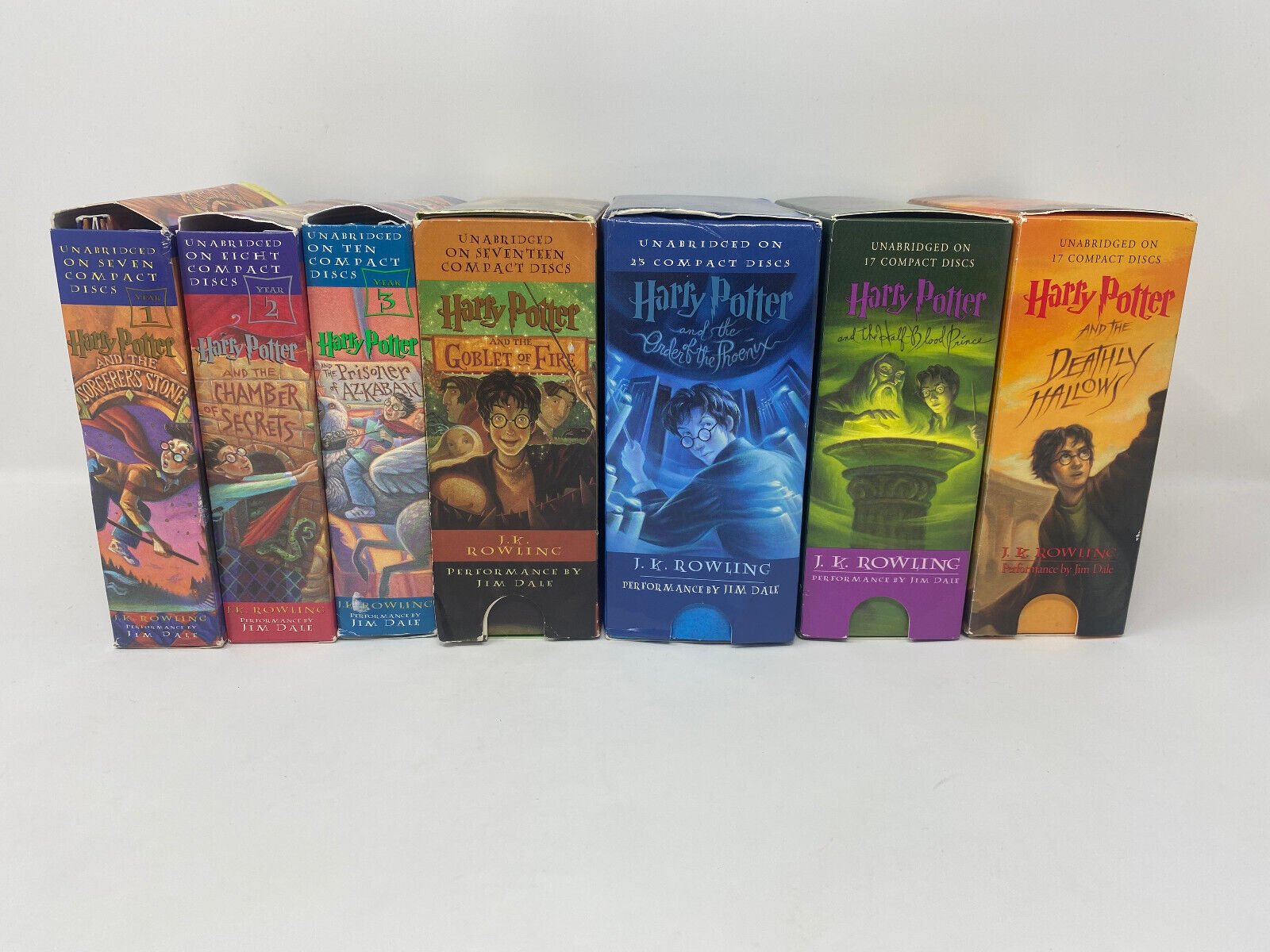Home>Production & Technology>Audiobook>Who Is The Best Audiobook Narrator


Audiobook
Who Is The Best Audiobook Narrator
Modified: January 22, 2024
Discover the best audiobook narrator for an immersive experience. Uncover the top talents in audiobook narration to enhance your listening pleasure.
(Many of the links in this article redirect to a specific reviewed product. Your purchase of these products through affiliate links helps to generate commission for AudioLover.com, at no extra cost. Learn more)
Table of Contents
- Introduction
- Importance of Audiobook Narrators
- Qualities of a Great Audiobook Narrator
- Famous Audiobook Narrators
- Listener Preferences for Audiobook Narrators
- Audiobook Narrators in Different Genres
- Challenges Faced by Audiobook Narrators
- Training and Skill Development for Audiobook Narrators
- Audiobook Narrator Awards and Recognition
- Conclusion
Introduction
When it comes to enjoying books, the traditional way of reading has expanded to include an increasingly popular alternative: audiobooks. Audiobooks bring stories to life through captivating narration, allowing listeners to immerse themselves in the world of literature. But what makes a great audiobook experience? The answer lies in the skill and talent of the audiobook narrator.
Audiobook narrators play a crucial role in bringing books to life for listeners. They have the unique ability to transform written words into an engaging auditory experience, capturing the emotions, characterizations, and nuances that make a story come alive. Just as a skilled actor can mesmerize an audience on stage, a talented audiobook narrator has the power to captivate listeners and keep them hooked until the very last word.
In this article, we’ll explore the art of audiobook narration and dive into the qualities that distinguish the best audiobook narrators. We’ll also take a look at some famous narrators who have left a lasting impact on the industry. Whether you’re an avid audiobook listener or an aspiring audiobook narrator, this article will provide insights into the world of audiobooks and help you appreciate the importance of skilled narration.
Importance of Audiobook Narrators
Audiobook narrators play a crucial role in shaping the overall listening experience. They bring life to the characters, set the tone, and create an immersive atmosphere for the story. Here are some key reasons why audiobook narrators are so important:
1. Enhancing the storytelling: A skilled narrator has the ability to create a deeper connection between the listener and the story. They use their voice, tone, and intonation to portray the emotions and personalities of the characters, making the story more engaging and memorable.
2. Providing accessibility: Audiobooks are a valuable resource for those with visual impairments or reading difficulties. Narrators make literature accessible to a wider audience, allowing them to enjoy books and stories that they might not have been able to experience otherwise.
3. Adding a personal touch: The voice of the narrator can become synonymous with the characters and the book itself. Listeners often develop a strong connection to specific narrators, seeking out their work and eagerly anticipating new releases. The narrator becomes a trusted companion, bringing familiarity and comfort to the listening experience.
4. Improving comprehension: For complex or challenging books, a skilled narrator can assist listeners in comprehending the material. By emphasizing important themes, providing clear inflections, and employing effective pacing, narrators help listeners follow the story and fully understand its nuances.
5. Bringing out the author’s intent: Narrators work closely with authors and publishers to understand the intended meaning and tone of the book. They have the responsibility of faithfully representing the author’s vision, ensuring that their performance aligns with the intended message and style of the written work.
Audiobook narrators are not just voice actors; they are storytellers who have the power to transport listeners to different worlds and evoke a range of emotions. Their skills and talents bring depth and richness to the narrative, creating a captivating listening experience that can leave a lasting impression.
Qualities of a Great Audiobook Narrator
Being an audiobook narrator requires more than just a pleasant voice. It takes a combination of skills, talents, and personal qualities to excel in this profession. Here are some essential qualities that make a great audiobook narrator:
1. Vocal versatility: A great narrator has the ability to create distinct and authentic voices for each character in the book. They can seamlessly transition between different accents, ages, and genders, bringing the characters to life and making them recognizable to the listener.
2. Exceptional storytelling ability: An effective narrator knows how to engage the listener through their storytelling skills. They understand the pacing, emphasis, and rhythm required to create a captivating narrative that keeps the listener hooked from start to finish.
3. Emotional intelligence: Narrating a book involves portraying a wide range of emotions, from joy and excitement to sadness and anger. A great narrator can convey these emotions authentically, evoking the appropriate feelings in the listener and making the story resonate on a deeper level.
4. Clear enunciation and diction: Articulating words clearly and pronouncing them correctly is crucial for audiobook narration. A great narrator pays attention to every word and ensures that the listener can easily understand and follow the story without confusion.
5. Interpretive skills: A skilled narrator knows how to interpret the author’s words and bring out their true meaning. They understand the subtleties of the text, allowing them to emphasize key points, convey subtext, and capture the essence of the story.
6. Technical proficiency: In addition to the performance aspect, a great narrator is technically proficient in operating recording equipment and editing software. They are able to produce high-quality recordings with clear audio and minimal background noise, ensuring a professional listening experience.
7. Adaptability: Every book is unique, and a great narrator can adapt their style and tone to suit the genre, setting, and characters of the story. They can seamlessly navigate between different genres, whether it’s a thrilling mystery, a heartwarming romance, or a thought-provoking non-fiction book.
8. Passion for literature: A genuine passion for books and storytelling is evident in the best audiobook narrators. They have a deep appreciation for the written word and a love for bringing stories to life through their narration.
A combination of these qualities helps a narrator create a truly immersive and engaging listening experience. Great narrators are not only talented performers but also dedicated professionals who strive to enhance the enjoyment and impact of the books they narrate.
Famous Audiobook Narrators
The world of audiobooks is filled with talented narrators who have become household names among book lovers. These narrators have not only elevated the art of narration but have also garnered a dedicated following of avid listeners. Here are some famous audiobook narrators who have left an indelible mark on the industry:
1. Jim Dale: With his enchanting voice and extraordinary storytelling ability, Jim Dale is perhaps most well-known for narrating the entire “Harry Potter” series. His ability to capture the essence of each character and bring the magical world of J.K. Rowling to life has made him a beloved figure among fans of audiobooks.
2. Scott Brick: Known for his rich and resonant voice, Scott Brick has narrated numerous best-selling books across various genres. His ability to convey both the intensity and subtleties of characters has made him a go-to narrator for thriller and suspense novels.
3. Davina Porter: With her elegant and expressive voice, Davina Porter has brought many classic works to life. Her narration of Diana Gabaldon’s “Outlander” series has won her critical acclaim and a devoted fan base.
4. George Guidall: George Guidall is a highly respected audiobook narrator who has lent his voice to numerous beloved books. His warm and soothing voice, coupled with his ability to capture the emotions of the characters, has made him a favorite among listeners of all ages.
5. Kate Reading and Michael Kramer: This husband-and-wife duo has become synonymous with narrating epic fantasy novels. Kate Reading and Michael Kramer have narrated popular series like Robert Jordan’s “Wheel of Time” and Brandon Sanderson’s “Mistborn,” bringing these intricate worlds and characters to life with their exceptional performances.
6. Neil Gaiman: While primarily known as an author, Neil Gaiman has also narrated many of his own works. His distinctive voice and nuanced delivery perfectly convey the whimsy and darkness present in his stories.
7. Cassandra Campbell: Cassandra Campbell is a versatile narrator who has tackled a wide range of genres, from literary fiction to young adult novels. Her ability to capture the essence of each character and create a powerful listening experience has earned her numerous accolades.
These are just a few examples of the many talented audiobook narrators who have made a significant impact on the industry. Each of them brings a unique voice and storytelling technique, contributing to the diverse and vibrant world of audiobooks.
Listener Preferences for Audiobook Narrators
When it comes to audiobooks, listener preferences for narrators can vary widely. While personal tastes and preferences play a significant role, there are a few common factors that tend to resonate with audiobook enthusiasts. Here are some key aspects that listeners often consider when it comes to their preferences for audiobook narrators:
1. Voice quality: The quality of the narrator’s voice is one of the first things that attracts listeners. A clear, pleasant, and engaging voice can draw listeners in and make the listening experience enjoyable. Some may prefer a deep and resonant voice, while others may prefer a lighter and more soothing tone.
2. Ability to embody characters: Listeners appreciate narrators who can effectively bring characters to life. Being able to differentiate between different characters through vocal changes and inflections adds depth and dimension to the storytelling, making it easier for listeners to follow along and connect with the characters emotionally.
3. Consistency in pacing and diction: A steady and appropriate pace is important, as it allows listeners to comfortably follow the narrative without feeling rushed or bored. Clear enunciation and consistent pronunciation also contribute to a seamless listening experience, minimizing confusion and enhancing comprehension.
4. Authenticity and emotional connection: Great narrators can evoke genuine emotions in their performances, allowing listeners to feel a deeper connection to the story and its characters. Listeners appreciate narrators who can effectively convey the intended emotions of the author, making the listening experience more immersive and powerful.
5. Genre suitability: Different genres require different narrative styles, and listeners often look for narrators who are well-suited to the genre they are interested in. For example, a narrator with a flair for suspense and tension may be preferred for thrilling mysteries, while a narrator with a knack for humor and comedic timing may be ideal for light-hearted comedies.
6. Reputation and familiarity: Many listeners develop a sense of loyalty and familiarity towards specific narrators whose work they have enjoyed in the past. They may actively seek out books narrated by these trusted favorites, as they know what to expect in terms of quality and performance.
7. Language and cultural understanding: For audiobooks that involve different accents or languages, listeners appreciate narrators who can authentically portray those accents and maintain consistency throughout the narration. Being able to accurately capture the nuances of a particular culture or dialect adds authenticity and enhances the listener’s overall experience.
Ultimately, listener preferences for audiobook narrators are highly subjective, and what resonates with one person may not resonate with another. However, by considering factors such as voice quality, character embodiment, pacing, emotional connection, genre suitability, reputation, and cultural understanding, listeners can find narrators whose performances align with their personal preferences, making the audiobook experience all the more enjoyable.
Audiobook Narrators in Different Genres
Audiobooks span various genres, and each genre requires a unique approach to narration. Narrators who specialize in specific genres bring their own expertise and style to enhance the listening experience. Here are some examples of audiobook narrators who have excelled in different genres:
1. Mystery/Thriller: When it comes to gripping mystery and suspense novels, narrators like Scott Brick and Lorelei King have established themselves as go-to voices. They masterfully build tension, create dramatic atmospheres, and deliver thrilling performances that keep listeners on the edge of their seats.
2. Fantasy: In the realm of fantasy literature, narrators such as Michael Kramer and Kate Reading are highly sought after. Their dynamic performances bring vast, imaginative worlds and complex characters to life, captivating listeners with their ability to immerse them in epic adventures.
3. Romance: Romance novels often require narrators who can convey the passion and emotion that comes with love stories. Renowned narrators like Sebastian York and Andi Arndt have won hearts with their ability to bring romantic tales to life, creating swoon-worthy moments and deep emotional connections.
4. Literary Fiction: Narrators like Juliet Stevenson and Simon Vance excel in bringing works of literary fiction to life. Their nuanced performances and ability to capture the depth of complex characters and philosophical themes make them highly respected in the genre.
5. Science Fiction: Science fiction audiobooks demand narrators who can transport listeners to futuristic worlds and explore complex concepts. Narrators like Wil Wheaton and RC Bray have the ability to convey the wonder and imagination of science fiction, making listeners feel like they are part of the futuristic adventures.
6. Non-Fiction: Narrating non-fiction books requires a different set of skills. Narrators like Joe Barrett and Rebecca Lowman have mastered the art of presenting factual information in an engaging and informative way, ensuring that listeners stay captivated while absorbing knowledge and insights from various subject matters.
7. Young Adult: Captivating the younger audience is a talent possessed by narrators such as Bahni Turpin and Steve West. They can infuse energy and authenticity into young adult novels, making the characters relatable and the stories come alive for young listeners.
These are just a few examples of audiobook narrators who have made their mark in specific genres. Each genre calls for different storytelling techniques, pacing, and character portrayals, and these narrators have honed their skills to cater to the unique demands of their respective genres.
Challenges Faced by Audiobook Narrators
While being an audiobook narrator can be a rewarding profession, it also comes with its fair share of challenges. Here are some of the hurdles that audiobook narrators often face:
1. Vocal strain: Narrating an audiobook requires hours of continuous reading and speaking, which can put strain on the narrator’s voice. Maintaining consistency, clarity, and vocal quality throughout long recording sessions can be physically demanding and requires proper voice care and technique to prevent vocal fatigue.
2. Pronunciation challenges: Audiobook narrators often encounter words or names that are complex or unfamiliar. Ensuring accurate pronunciation can be a challenge, as they may need to research and practice pronunciations to avoid mistakes or misinterpretations that could disrupt the listening experience.
3. Character consistency: In novels with a large cast of characters, maintaining consistency in voices and characterization can be a challenge. Narrators must remember each character’s voice, accent, and mannerisms to ensure continuity and to avoid confusing listeners when multiple characters are involved in a conversation.
4. Genre versatility: Audiobook narrators are often called upon to narrate different genres, which can require adaptability in narrating styles, characterizations, and pacing. Switching between genres smoothly and authentically is a skill in itself, and narrators must be able to adapt to the nuances and tone of each genre to meet listeners’ expectations.
5. Editing and post-production: Narrators are not only responsible for the performance but also for the technical aspects of recording and editing. This includes editing out mistakes, background noise, and ensuring a seamless flow between sections. The time-consuming nature of editing can extend the overall production process for an audiobook.
6. Time management: Meeting tight deadlines can be a challenge, especially when narrators are juggling multiple audiobook projects or have other commitments. Efficient time management is crucial to ensure that projects are completed in a timely manner without compromising the quality of the narration.
7. Emotional demands: Narrating emotionally intense scenes can be emotionally demanding for narrators. They may need to channel and convey the emotions of characters, which can be mentally and emotionally taxing, especially in books with heavy or distressing subject matter.
8. Adaptability to different formats: Audiobook narrators may need to adapt their performance to different formats, such as abridged versions or audio dramas. Each format requires a different approach, and narrators must be versatile in adapting their delivery and style to suit the specific format.
Despite these challenges, audiobook narrators continue to deliver exceptional performances that immerse listeners in the world of storytelling. Their dedication, skill, and passion for narration enable them to overcome these hurdles and create captivating audiobook experiences for their audiences.
Training and Skill Development for Audiobook Narrators
Being an audiobook narrator requires a unique set of skills that can be honed through training and skill development. While some individuals may possess natural talents, refining those abilities through proper training can help narrators reach their full potential. Here are some key aspects of training and skill development for audiobook narrators:
1. Voice and speech training: Developing a clear and expressive voice is crucial for narrators. Voice and speech training can help improve vocal clarity, tone, and resonance, as well as provide techniques to sustain vocal health and stamina during long recording sessions.
2. Acting and interpretation: Narrators must have a solid understanding of acting techniques to effectively portray the different characters and emotions in a book. Acting classes and workshops can help narrators develop skills such as character analysis, script analysis, emotional connections, and dynamic storytelling.
3. Diction and pronunciation: Proper diction and pronunciation are essential for narrators to deliver a polished performance. Training in phonetics and linguistics can help narrators enhance their understanding and execution of proper pronunciation, ensuring a seamless and professional narration.
4. Breathing and vocal control: Breath control is crucial for narrators to maintain consistency, projection, and pacing throughout a narration. Training in techniques such as diaphragmatic breathing and vocal exercises can help narrators improve their breath support and vocal control.
5. Text analysis and preparation: Understanding the nuances of the text is essential for narrators to effectively convey the author’s intent. Training in text analysis and preparation can help narrators develop skills in identifying key themes, subtext, and character motivations, enabling them to create a more engaging and believable performance.
6. Audio recording and editing: Familiarity with recording equipment, editing software, and sound engineering techniques is necessary for narrators who work independently or in home studios. Training in audio production can help narrators enhance their technical skills, ensuring high-quality recordings and efficient post-production processes.
7. Professional development and industry knowledge: Staying updated on industry trends, understanding the audiobook market, and learning from experienced professionals can further enhance a narrator’s skills. Attending conferences, workshops, and joining professional organizations can provide valuable networking opportunities and insights into the industry.
8. Practice and feedback: Continuous practice and seeking feedback are vital for improvement. Narrators can benefit from regularly recording and analyzing their performances, as well as working with voice coaches or mentors who can provide constructive feedback and guidance.
Training and skill development are ongoing processes for audiobook narrators. By investing time and effort into honing their craft, narrators can continuously improve their performances, expand their range, and meet the demands and expectations of both listeners and the industry.
Audiobook Narrator Awards and Recognition
As the popularity of audiobooks continues to grow, the recognition and appreciation for the art of narration have also increased. Various awards and accolades have been established to honor outstanding performances by audiobook narrators. These awards not only celebrate their talent but also highlight the importance of their contributions to the audiobook industry. Here are some notable audiobook narrator awards:
1. Audie Awards: The Audie Awards, presented by the Audio Publishers Association (APA), are considered the most prestigious awards in the audiobook industry. These annual awards recognize outstanding audiobook productions in various categories, including narration, production quality, and innovation.
2. Voice Arts Awards: The Voice Arts Awards, presented by the Society of Voice Arts and Sciences (SOVAS), celebrate excellence in voice acting across multiple platforms, including audiobooks. This award recognizes exceptional narration, characterizations, and overall performances by voice actors and narrators.
3. Odyssey Awards: The Odyssey Awards, sponsored by the American Library Association (ALA), honor excellence in audiobook productions for children and young adults. These awards recognize outstanding performances and productions that enhance the listening experience for young audiences.
4. Earphones Awards: The Earphones Awards, given by AudioFile magazine, highlight remarkable performances in audio narration. Each month, AudioFile’s reviewers select audiobooks with exceptional performances and award them with an Earphones honor, recognizing the narrators’ talent and skill.
5. Grammy Awards – Best Spoken Word Album: While primarily focused on music, the Grammy Awards also have a category for Best Spoken Word Album, which includes audiobooks. This category acknowledges exceptional narrators and their contributions to spoken word recordings.
6. Publisher’s Weekly Listen Up Awards: The Publisher’s Weekly Listen Up Awards recognize outstanding audiobook narrations across various genres. These awards highlight narrators who excel in bringing stories, characters, and emotions to life, capturing listeners’ attention and enhancing their audiobook experiences.
Apart from these specific awards, narrators may also receive praise, recognition, and loyal fan bases for their exceptional work. Listeners often express their appreciation through reviews, social media engagement, and word-of-mouth recommendations, contributing to the overall recognition and success of talented audiobook narrators.
The recognition received through these awards and the appreciation from listeners not only validate the hard work and skill of audiobook narrators but also help to elevate the awareness and appreciation for the art of narration as an essential component of the audiobook industry.
Conclusion
Audiobook narrators play a crucial role in bringing stories to life and creating immersive listening experiences for book enthusiasts. The art of audiobook narration requires a unique combination of skills, from vocal versatility and storytelling ability to emotional intelligence and adaptability across genres.
The importance of skilled narration cannot be overstated. Audiobook narrators enhance the storytelling, provide accessibility to a wider audience, and add a personal touch that connects listeners to the characters and the book itself. They improve comprehension, bring out the author’s intent, and contribute to the overall enjoyment and impact of the book.
Famous audiobook narrators, such as Jim Dale, Scott Brick, and Davina Porter, have captivated listeners with their exceptional performances. Listener preferences for audiobook narrators may vary, but factors such as voice quality, character embodiment, genre suitability, and emotional connection often influence their choices.
Audiobook narrators face challenges, including vocal strain, pronunciation complexities, character consistency, genre versatility, and the demands of editing and post-production. However, through training, skill development, and continuous practice, narrators can overcome these challenges and deliver exceptional performances.
Recognizing the importance of audiobook narrators, various awards and accolades, such as the Audie Awards, Voice Arts Awards, and Odyssey Awards, have been established to honor their talent and contributions. As the industry continues to grow, these awards help elevate the recognition and appreciation of narrators’ work.
In conclusion, the art of audiobook narration is a crucial aspect of the audiobook industry, and skilled narrators are integral to creating captivating and memorable listening experiences. Their ability to bring stories to life, transport listeners to different worlds, and evoke emotions is what truly makes audiobooks a remarkable medium for storytelling.











